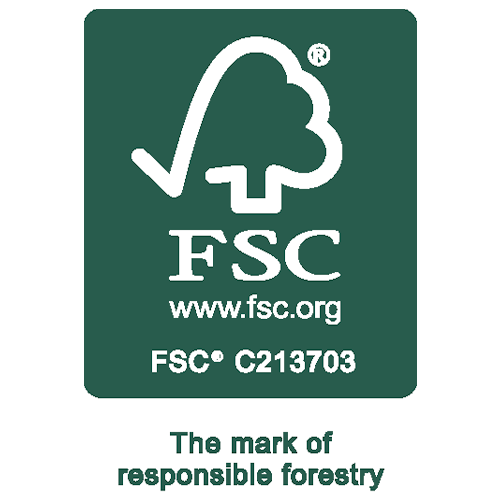There are few things more important than choosing the right flooring material for a home or business. Functionality and style literally start from the ground up. This is one of the first choices you’ll make in a remodel or new build, so make sure you’re choosing right.
Hardwood and vinyl flooring are two of the most popular options, so how do they measure up to each other? We’ll put these two materials head-to-head on categories like cost, maintenance, and sustainability to help you figure out which is right for you.
Hardwood Flooring: Pros and Cons
Hardwood flooring is more of an investment, but it has many advantages. Although installation can be more pricey, hardwood flooring is a hardy material that can be sanded down and refinished to correct damage or even change up its look.
If sourced responsibly, hardwood floors are also more eco-friendly. Lumber from properly managed forests fights against deforestation and supports local flora and fauna.
| Pros | Cons |
|---|---|
|
|
Vinyl Flooring: Pros and Cons
Vinyl flooring comes in an array of options, such as sheets or tiles that are made to look like wood, stone, tile, or almost any other material. It’s a less expensive option, making it an ideal choice for flooring on a budget.
However, vinyl flooring doesn’t last as long as hardwood flooring, and it isn’t environmentally friendly because it’s made from fossil fuels.
| Pros | Cons |
|---|---|
|
|
1. Design Aesthetic
Winner: Hardwood
Vinyl or hardwood floors can suit any style, mimicking any material, such as faux marble, if stone isn’t in your budget. However, if your taste changes later, your only option is to rip it all up and redo the floors.
Hardwood flooring comes in many different styles, depending on the type of lumber and stain used. For example, Hickory is a naturally dark lumber, but a similar look might be achieved with a dark stain on a lighter wood like Basswood.
Because it’s such a desirable material, it never goes out of style and may even increase your home’s value. However, the real reason hardwood wins in this category is because it’s much easier to achieve a different look by sanding down and restaining hardwood floors.
2. Cost of Materials
Winner: Vinyl
When you get a quote for flooring installation, vinyl flooring will almost always be less expensive. But keep in mind that you could pay more over time if there’s damage to repair. For example, if you have pets that scratch up the floor or if moisture gets between the vinyl panels, you might have to replace it much sooner than anticipated.
Although hardwood can cost more, hardwood flooring typically lasts much longer than vinyl options. Hardwood floors can last decades with a little TLC.
3. Maintenance
Winner: Tie
Both vinyl and hardwood floors are very easy to clean. They can be swept, vacuumed, and wiped down with the proper cleaning agents. For vinyl floors, look for a cleaner that won’t scratch the surface or cause lifting along the panels. Hardwood floors can be cleaned with any floor cleaner marked safe for use on wood.
Although vinyl flooring needs no additional maintenance beyond cleaning, there’s also nothing to do to fix it if damage occurs. Hardwood is slightly higher maintenance because it needs to be resealed every so often. However, minor water damage or scratches in hardwood can be easily repaired, which is why we’re calling this one a tie.
4. Recyclability and Biodegradability
Winner: Hardwood
Hardwood is the clear winner when it comes to sustainability. Vinyl, like all plastics, is made from fossil fuels. Although some plastics are recyclable, vinyl flooring usually isn’t, so it doesn’t get a second life after it’s removed from the floor. It’s also not biodegradable.
Hardwood flooring from ethically harvested lumber is much more sustainable. Active forest management ensures a steady growth of new trees as mature trees are processed for lumber. And unlike vinyl flooring, hardwood flooring can be recycled and repurposed after it’s removed from a home. Even if the hardwood can’t be repurposed, it’s a biodegradable material, so it will break down instead of sitting in a landfill for hundreds of years.
5. Carbon Footprint
Winner: Hardwood
Hardwood flooring has a much smaller carbon footprint than vinyl flooring. Vinyl flooring production releases a large amount of carbon and other pollutants into the atmosphere.
Forests are a key component of the carbon sequestration process. This means that trees capture and store carbon from the air, reducing greenhouse gases in the atmosphere. That carbon stays in the wood throughout its lifespan, so using sustainable hardwood flooring can have a positive impact on the environment.
6. Production Impacts
Winner: Hardwood
The production of hardwood puts less strain on the environment and natural resources compared to vinyl. Transforming fossil fuels to vinyl is a very energy-intensive process and each step can release harmful byproducts and chemicals into the air and water supply.
Processing wood into lumber uses far less energy and fewer chemicals. Some hardwood might be chemically treated to kill invasive species like the Emerald Ash Borer, but otherwise, processing trees is simple.
You can also look for FSC®-certified options, which are strictly regulated to meet ethical and sustainable production guidelines:
7. Air Quality & Chemical Emissions
Winner: Hardwood
Volatile organic compounds (VOCs) are chemicals that evaporate at room temperature. There are some less harmful VOCs you probably have around the house already, like hairspray or kitchen cleaner. However, some VOCs are much more harmful.
Many plastics, like vinyl, can off-gas harmful VOCs for years, reducing air quality in a home and causing issues for children, older adults, and immunocompromised people. Hardwood floors can off-gas VOCs after they’re re-sealed, but these dissipate much faster, so there isn’t as much exposure compared to vinyl flooring.
Choose Hardwood Flooring for Life
Whether you’re remodeling a home or rebranding a small business, new floors can completely change the feeling of a space. Instead of cutting corners with vinyl, choose hardwood flooring that lasts a lifetime, is always in fashion, and is even good for the environment.
At Gutchess Lumber Inc., Co., we’re dedicated to ethical lumber manufacturing at the highest standard. Choose from our FSC®-certified hardwood for a product you can trust to last for years to come.
FAQs
Is hardwood more sustainable than vinyl?
Yes, hardwood is a more sustainable material than vinyl because it’s made from trees, which are a renewable resource. Vinyl is made from non-renewable fossil fuels.
Does vinyl flooring affect indoor air quality?
Yes, vinyl flooring can affect indoor air quality because it can release VOCs that are damaging to breathe.
What happens to flooring at the end of its life?
At the end of its life, flooring can be recycled, reused, or thrown out, depending on the material. Hardwood flooring is usually able to be reused or recycled, and if it must be thrown out, it’s biodegradable. Vinyl flooring, however, can usually only be thrown out, and it doesn’t break down like natural materials can.

